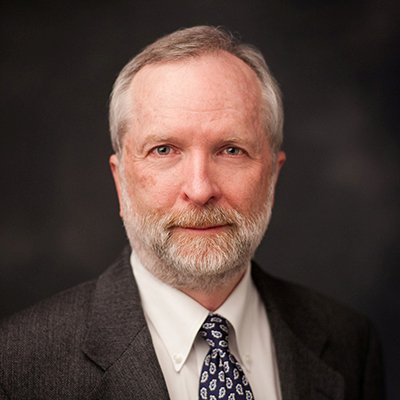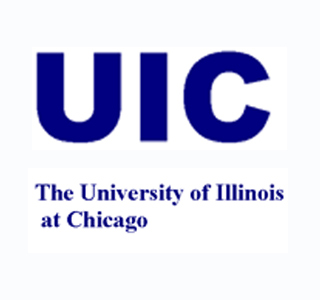Mechanisms of chemical reactions inform environmental and energy applications
Experimental physical chemistry is concerned with making precise measurements that can test hypotheses about the nature of chemical processes. Dr. Michael Trenary of the University of Illinois at Chicago focuses on understanding the mechanisms of chemical reactions that take place on solid surfaces. These reactions are essential to many technological processes. Although basic rather than applied, Dr. Trenary’s research thus has implications for many technologies that shape everyday life. For example, his work is contributing to such advances as the development of sophisticated batteries and cleaner-burning fossil fuels.
Dr. Trenary’s innovative research is particularly noteworthy for the unique instruments that he and his team have constructed for studying surface chemical reactions. With over thirty years of experience in the field, Dr. Trenary has used these new instruments to pioneer novel techniques for studying surfaces, while inspiring a new generation of scientists with creative approaches to chemistry. With a specialized expertise in the use of infrared spectroscopy, Dr. Trenary is able to identify and characterize novel molecular species that form during the course of surface chemical reactions. Moreover, his active collaborations with researchers in both the United States and in Japan have helped build a research program that fosters diversity of background, experience, and perspective. By gaining a fundamental understanding of the mechanisms of surface chemical reactions, Dr. Trenary and his team aim to design new materials for specific functions where surfaces play a critical role.
Current research includes:
-
Advanced Battery Technology: Dr. Trenary and his team recently began investigating how lithium and magnesium atoms deposited onto a metal oxide surface migrate into the interior of the oxide solid. This is one of the key reactions that determine how well lithium-ion batteries work. Research on even more advanced batteries is directed at replacing lithium with magnesium. With the capacity for rapid charging and greatly expanded energy capacity, these batteries will power the next generation of high-efficiency electric vehicles.
-
Pollution Control: Dr. Trenary is studying chemical pathways for the catalytic removal of sulfur from heavy fossil fuels. The newer petroleum resources that are becoming increasingly important often contain sulfur in compounds that makes older sulfur-removal methods impractical. New methods are urgently needed for the removal of sulfur and other elements that contribute to pollution. Dr. Trenary’s proposed research should provide a basis for developing new catalysts and catalytic processes essential for pollution control.
Bio
Dr. Michael Trenary has always been fascinated with science and with chemistry in particular. As a child, he experimented with a home laboratory in his parents’ garage and dreamed of becoming a research scientist. Now, as an award-winning professor of physical chemistry at a major research university, his lifelong passion for science is the foundation of his work. The thrill of discovery, an insatiable curiosity, and a drive for precise and definitive answers to hypotheses about how nature works continue to motivate him.
In his free time, Dr. Trenary enjoys hiking and backpacking. With his family, he also likes to travel and to explore his hometown of Chicago, especially its many museums, theaters, and restaurants.
Website: http://www2.chem.uic.edu/mtrenary/


